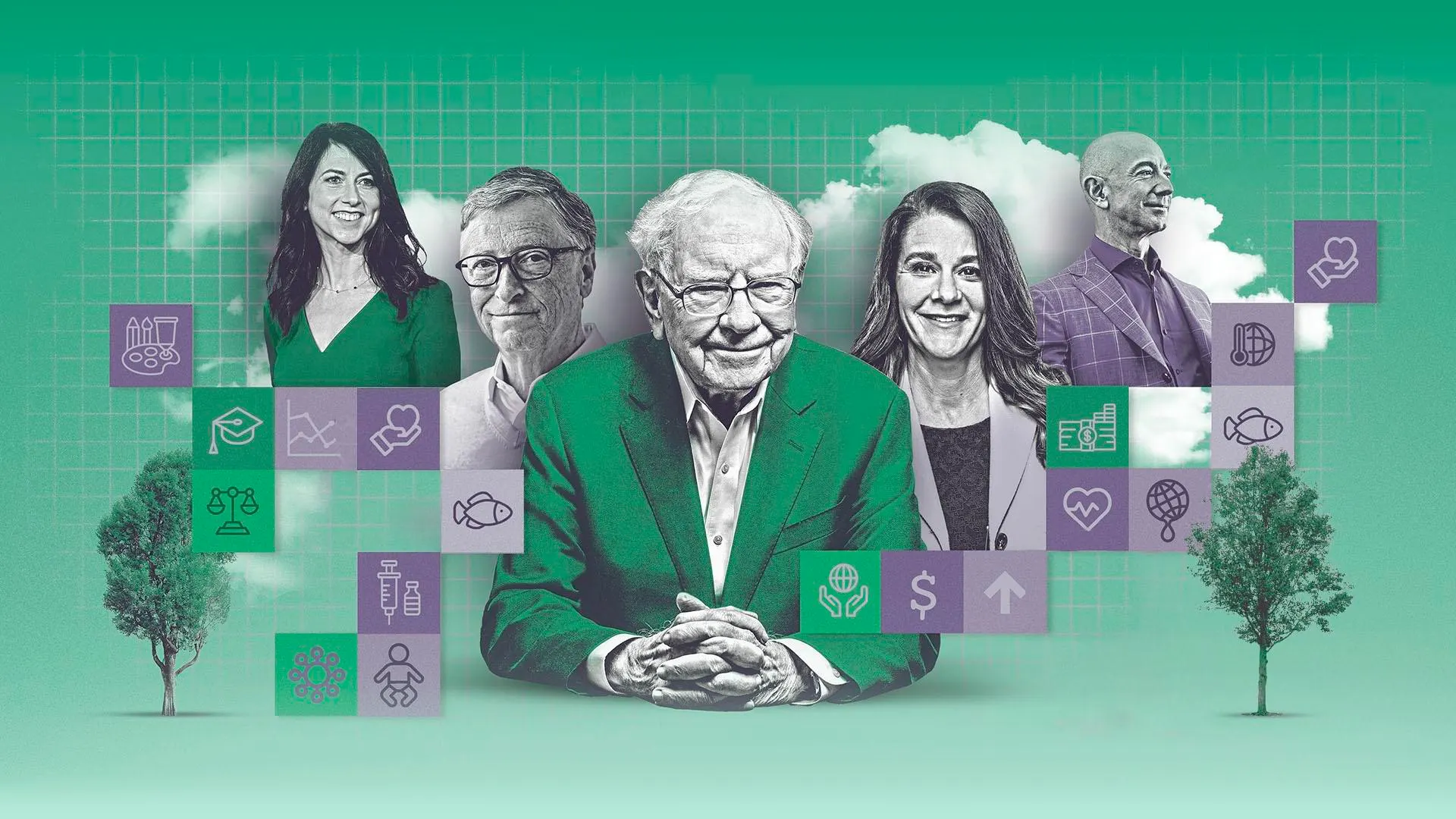
There is a regular conversation about the 1% versus the 99%, so I tried to track down: who are the 1%? The numbers surprised me. According to the 2024 Global Wealth Report, the global millionaire count has soared, reaching approximately 58 million. I thought it would be more like 100 million millionaires (and probably is in reality). If you travel between London, Dubai, Singapore, Hong Kong and New York, you pretty much would have to be a millionaire to have a good life there.
58 million millionaires represent 1.5% of the global adult population and the United States is home to the highest number of millionaires, nearly 22 million or 38% of the world’s total millionaire population. Mainland China follows with over six million, double that of the UK, which ranks third. Thing is that these millionaires are minions in comparison to the billionaires of the world. There are nearly 2,800 billionaires alive today, and they have a total net wealth of $14.2 trillion (£11.4 trillion).
As often reported, the wealthiest people in the world have more in the bank than the lowest fifty percent or, in real terms, around four billion people live on little whilst a few live on a lot. In fact, the bottom 8.5 percent of the global population – almost 700 million people – live on less than $2.15 per day, the extreme poverty line according to the World Bank.
So, one in ten people are poor. Does it matter?
Well, it is interesting when you look at the ultra-billionaire list and find Elon Musk, Larry Page, Bill Gates and Mark Zuckerberg up there. The usual suspects. Then there’s Warren Buffett of course and, oh, we mustn’t forget Bernard Arnault, the richest man in the world in 2024 (and you all thought it was Elon!).
Nevertheless, it is an interesting proof point that technology has driven such wealth. A little bit like the railroads, cars and industrialisation of the century before that enabled bankers and oil merchants to become the equivalent of billionaires of their time – John Pierpont Morgan, John D. Rockefeller, Andrew Mellon, Andrew Carnegie and Henry Ford – the technologists of today are now the leaders in wealth. But what are they doing for society?
We know about Warren Buffett and Bill Gates doing a great deal to give back to society through their philanthropic efforts, but what about the other guys?
Well, many of them are doing something but, most interestingly, is the one individual who does not make a big deal of it but is actually the greatest giver of all: MacKenzie Scott. She was married to Jeff Bezos and, since their divorce, has spent most of her time giving away her money. She has no foundation and gives her wealth away in stealth, donating $19,250,000,000 to 2,450+ non-profit teams since 2019. Most of her donations are to areas focused upon democracy, equity and justice, education, health, economic security and opportunity. Her philanthropic work is highlighted by the website Yield, who show that working on “race and ethnicity” and “youth development” are the two largest categories for her donations.
You have to give respect to this lady and it makes you wonder why some names are not on the philanthropy list. For example, according to Forbes, of the 22 biggest givers in 2022 Elon Musk and Larry Page names are missing.
Larry has donated $2 billion over the past fifteen years to various causes through his Carl Victor Page Memorial Foundation whilst Elon has donated billions of Tesla stock to his foundation, although it is notable that most of Musk's “philanthropy” has gone to enterprises that technically qualify as charitable, but that also support his own business interests and his family's welfare. For example, a major recipient of grants from the Musk Foundation has been Ad Astra, a nonprofit school founded by, yes, Elon Musk.
Alan Cantor also notes that, since 2020, Musk has donated around $7 billion of stock to the Musk Foundation, in the process saving himself some $2 billion in tax payments. Two billion dollars is a lot of money not going to the common good through taxation.
So, philanthropy. A good thing, a tax dodge or both? Either way, it is notable the actions of our wealthiest world people.
#justathought
Chris M Skinner
Chris Skinner is best known as an independent commentator on the financial markets through his blog, TheFinanser.com, as author of the bestselling book Digital Bank, and Chair of the European networking forum the Financial Services Club. He has been voted one of the most influential people in banking by The Financial Brand (as well as one of the best blogs), a FinTech Titan (Next Bank), one of the Fintech Leaders you need to follow (City AM, Deluxe and Jax Finance), as well as one of the Top 40 most influential people in financial technology by the Wall Street Journal's Financial News. To learn more click here...

